23 May 2023 : Daily Current Affairs
DAILY CURRENT AFFAIRS
- DAILY CURRENT AFFAIRS
- 1. Prime Minister extols the value of Pacific island nations at third FIPIC summit.
- 2. The tussle over ‘services’ in Delhi
- 3. Territorial Army steps in and takes control of fuel and LPG supplies in Manipur.
- 4. Aim to lift AFSPA from Assam by 2023-end: CM
- 5. Education Ministry holds meet on PARAKH aimed at unifying 60 School Boards
- For Enquiry
23-May-2023
Daily Current Affairs For UPSC ,Daily Current affairs of The hIndu and Indian Express.
1. Prime Minister extols the value of Pacific island nations at third FIPIC summit.
Topic: GS2 – International relations.
Context:
-
-
-
Prime Minister Narendra Modi delivered opening remarks at the FIPIC-3 summit in Port Moresby, Papua New Guinea.
-
-
Issue:
-
-
-
He highlighted the importance of the small island nations of the Pacific Ocean, referring to them as “large ocean states.”
-
Modi expressed India’s commitment to assist in the development goals of the FIPIC member countries.
-
He emphasized the challenges faced by these nations, including climate change, natural calamities, poverty, and supply chain disruptions.
-
Modi mentioned India’s support to these countries in providing vaccines, medicines, wheat, and sugar during times of difficulty.
-
The previous two FIPIC meetings were held in Fiji in 2014 and Jaipur in 2015.
-
Prime Minister James Marape of Papua New Guinea urged India to advocate for the Global South in the G-7 and G-20 meetings.
-
-
2. The tussle over ‘services’ in Delhi
Topic: GS2 – Federal issues.
Context:
-
-
-
The Government of National Capital Territory of Delhi (Amendment) Ordinance, 2023, is an ordinance promulgated by the President of India on May 19, 2023.
-
-
Issue:
-
-
-
The Ordinance aims to provide a comprehensive scheme of administration of services in the national capital, Delhi, and balance the interests of the people of Delhi with the democratic will of the entire nation.
-
It establishes the National Capital Civil Service Authority (NCCSA), with the Chief Minister as the chairperson, Chief Secretary and Principal Home Secretary as members, and Member Secretary, respectively.
-
The NCCSA will have authority over civil service officers in all Delhi government departments, except those in public order, police, and land.
-
It grants the Lieutenant Governor the final decision-making power in case of a difference of opinion between the NCCSA and the Lieutenant Governor.
-
The Ordinance is seen as an attempt by the central government to restore some powers to the Lieutenant Governor, curtailed by a previous Supreme Court judgment in 2018.
-
The May 11 judgment by the Supreme Court held that the Delhi government has the power to make laws and administer civil services in Delhi while limiting the role of the Lieutenant Governor to three specific areas.
-
The Ordinance goes against the Supreme Court judgment by creating the NCCSA and giving it significant authority over civil service officers, undermining the principle of government accountability and collective responsibility highlighted in the judgment.
-
The Ordinance is expected to face judicial review, and the central government would need to justify the need for the Ordinance after the recent Supreme Court judgment.
-
-
3. Territorial Army steps in and takes control of fuel and LPG supplies in Manipur.
Context:
-
-
-
The Territorial Army (TA) has taken control of oil installations in Manipur to ensure the supply of essential petroleum and oil products.
-
-
Issue:
-
-
-
The installations were either shut down or not fully operational due to a shortage of employees and security constraints.
-
The TA unit deployed is the 414 Army Service Corps Battalion Marketing (TA), trained to manage oil installations independently.
-
The unit has ensured the functioning of the Imphal aviation fuelling station, Malom bulk oil depot, and Sekmai LPG bottling plant.
-
The depot operates efficiently, with over 400 tank trucks dispatched to petrol pumps and security units across Manipur.
-
The Sekmai LPG bottling plant is also operational, dispatching 8,000-10,000 cylinders daily.
-
-
About the Territorial Army:
The Territorial Army (TA) is a part-time, voluntary citizen’s force in India that functions as a reserve component of the Indian Army. It was officially established in 1949 under the Territorial Army Act. The primary role of the Territorial Army is to relieve the regular army from static duties and assist in civil administration during emergencies. It consists of individuals willing to serve the country in their spare time and have civilian careers.
-
-
-
Composition: The Territorial Army comprises volunteers who receive military training and can be called upon for national service during times of need. The personnel in the Territorial Army are often professionals, including doctors, engineers, teachers, and other working individuals.
-
Role and Functions: The primary role of the Territorial Army is to provide augmentation to the regular army during national emergencies and security threats. It can also support civil authorities in dealing with natural disasters, internal security situations, and any other tasks deemed necessary by the government.
-
Training and Commitment: Territorial Army personnel undergo basic military training and are required to attend annual training camps to maintain their readiness. They are expected to balance their civilian careers with their obligations to the Territorial Army.
-
Employment and Mobilization: Territorial Army units are deployed when there is a requirement for additional forces. They can be mobilized at the national, regional, or local level based on the nature of the situation and the government’s directives.
-
Affiliation with Regular Army: The Territorial Army is integrated with the regular army and follows its structure and rank system. It is governed by the rules and regulations of the Indian Army, and its personnel wear the army uniform during their service.
-
Eligibility and Recruitment: To join the Territorial Army, individuals must meet specific criteria, including age limits, educational qualifications, and physical fitness standards. Recruitment is conducted through a selection process that includes a written examination, an interview, and a medical examination.
-
Benefits and Privileges: Territorial Army personnel are entitled to various benefits and privileges, including pension, health care facilities, canteen facilities, and opportunities for professional development.
-
-
4. Aim to lift AFSPA from Assam by 2023-end: CM
Topic: GS2 – Indian polity.
Context:
-
-
-
Assam Chief Minister Himanta Biswa Sarma announced that the Armed Forces Special Powers Act (AFSPA) will likely be completely lifted from the state by the end of 2023.
-
The decision to lift AFSPA is due to the significant improvement in law and order situation in Assam.
-
-
Issue:
About AFSPA:
The Armed Forces Special Powers Act (AFSPA) is an act that grants special powers to the armed forces in designated “disturbed areas” to maintain law and order. It was enacted by the Indian Parliament in 1958 and initially applied to the states of Assam and Manipur. Over time, it has been extended to other regions as well.
Key features of AFSPA include:
-
-
-
Powers: AFSPA grants the armed forces the authority to arrest without a warrant, use force, and even open fire upon individuals deemed to be a threat to public order in the designated areas.
-
Search and Seizure: The armed forces have the authority to search and seize property without a warrant.
-
Legal Protection: The act provides legal protection to the armed forces, preventing them from being prosecuted for actions taken in the line of duty without prior sanction from the central government.
-
Designated Areas: AFSPA is applicable to areas that the central or state government declares as “disturbed areas” where the use of armed forces is deemed necessary to maintain public order.
-
-
Issues with AFSPA:
-
-
-
Human Rights Abuses: AFSPA has been criticized for enabling human rights violations by the armed forces. There have been allegations of extrajudicial killings, torture, enforced disappearances, and sexual violence committed by security personnel operating under the act.
-
Lack of Accountability: The act provides legal immunity to the armed forces, as they cannot be prosecuted without prior sanction from the central government. This lack of accountability has been a significant concern, as it can lead to impunity for human rights abuses.
-
Violation of Civil Liberties: AFSPA grants extensive powers to the armed forces, including the power to arrest without warrant, use force, and conduct searches and seizures without prior judicial oversight. Critics argue that these provisions violate the fundamental rights of individuals, such as the right to life, liberty, and due process.
-
Disproportionate Use of Force: The act allows the use of force, including lethal force, by the armed forces in situations that are not adequately defined. Critics argue that this discretion can lead to the disproportionate use of force, resulting in civilian casualties and a hostile environment.
-
Lack of Effective Redressal Mechanisms: The act lacks proper mechanisms for addressing complaints and seeking redressal for human rights violations. This further contributes to the culture of impunity and hinders justice for victims.
-
Impact on Civil-Military Relations: AFSPA can strain civil-military relations as it grants the armed forces extensive powers over civilian areas. It raises concerns about the militarization of governance and the role of the military in internal security matters.
-
-
The Jeevan Reddy Committee Recommendations:
The Jeevan Reddy Committee, also known as the Committee on Review of the Armed Forces Special Powers Act (AFSPA), was constituted in 2005 by the Government of India. The committee examined the provisions of AFSPA and made several recommendations. Some of the key recommendations of the committee were:
-
-
-
Repeal of AFSPA: The committee recommended that AFSPA be repealed. It argued that the act was draconian in nature and incompatible with a democratic society governed by the rule of law.
-
Use of Unwarranted Powers: The committee noted that AFSPA provided extensive powers to the armed forces, including the power to arrest without warrant, use force, and enter and search premises, which could lead to human rights abuses. It recommended that these powers be removed.
-
Accountability and Prosecution: The committee emphasized the need for accountability and recommended that any member of the armed forces accused of committing an offence be tried in a regular criminal court. It proposed that the protection provided to security personnel under AFSPA be removed to ensure accountability for their actions.
-
Review of Disturbed Areas: The committee suggested that the designation of “disturbed areas” under AFSPA should be reviewed periodically. It recommended that the process for declaring an area as disturbed should be made more transparent and subject to scrutiny.
-
Effective Grievance Redressal Mechanism: The committee recommended the establishment of an independent commission to investigate complaints of human rights violations by the armed forces.
-
-
5. Education Ministry holds meet on PARAKH aimed at unifying 60 School Boards
Topic: GS1 – Indian society/education
Context:
-
-
-
The Education Ministry organized a workshop in New Delhi to unify a network of 60 school examination boards of various states and union territories.
-
-
Issue:
-
-
-
The workshop aimed to study school assessments, examination practices, and equivalence of boards across the country.
-
The main component of the plan is PARAKH, the National Assessment Centre, which operates under the National Council of Educational Research and Training (NCERT).
-
PARAKH’s mandate is to bring school boards from different states and union territories onto a common platform.
-
The workshop served as a common platform for stakeholders to develop a holistic approach that ensures a fair assessment system, promotes equity in performance, and establishes equivalence in the assessment of students.
-
The Secretary (School Education) highlighted the need for equivalence of boards and establishing a unified framework for seamless transitions for students moving between different boards or regions.
-
The discussion also focused on reassessing the prevalent rote examination culture in the education system.
-
-
For Enquiry

23 May 2023 : Daily Current Affairs
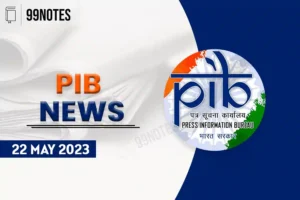
22 May 2023 : PIB
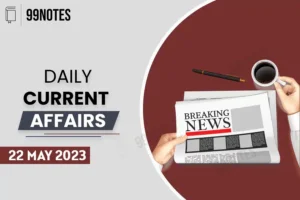
22 May 2023 : Daily Current Affairs
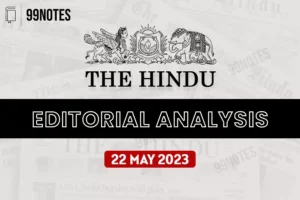
22 May 2023 : The Hindu Editorial
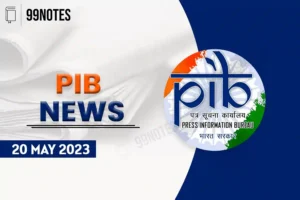
20 May 2023 : PIB
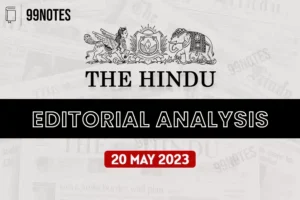
20 May 2023 : The Hindu Editorial
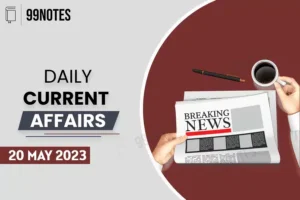
20 May 2023 : Daily Current Affairs
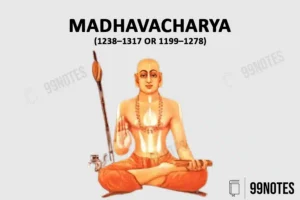
Madhavacharya (1238–1317 or 1199–1278)

Industrial Infrastructure UPSC

Chapter 9: Industry Steady: Recovery
Daily Current Affairs 23 May 2023 : Daily Current Affairs DAILY CURRENT AFFAIRS
23-May-2023
Daily Current Affairs For UPSC ,Daily Current affairs of The hIndu…
PIB 22 May 2023 : PIB PRESS INFORMATION BUREAU
22-May-2023
Daily Current Affairs For UPSC ,The PIB ( Press Information Bureau…
Daily Current Affairs 22 May 2023 : Daily Current Affairs DAILY CURRENT AFFAIRS
22-May-2023
Daily Current Affairs For UPSC ,Daily Current affairs of The hIndu…
The Hindu 22 May 2023 : The Hindu Editorial THE HINDU EDITORIAL
22-May-2023
Daily Current Affairs For UPSC ,The Hindu Editorial Summary
Facebook-f
Twitter
Youtube
1. Delhi’s…
PIB 20 May 2023 : PIB PRESS INFORMATION BUREAU
20-May-2023
Daily Current Affairs For UPSC ,The PIB ( Press Information Bureau…
The Hindu 20 May 2023 : The Hindu Editorial The Hindu Editorial
20-May-2023
Daily Current Affairs For UPSC ,The Hindu Editorial Summary
Facebook-f
Twitter
Youtube
1. Among…
Daily Current Affairs 20 May 2023 : Daily Current Affairs DAILY CURRENT AFFAIRS
20-May-2023
Daily Current Affairs For UPSC ,Daily Current affairs of The hIndu…
evaluation of the rajput states upsc Madhavacharya (1238–1317 or 1199–1278) Madhavacharya was born in a Brahmin family in the Udupi district of Karnataka.
Madhavacharya propounded…
Infrastructure Industrial Infrastructure UPSC Infrastructure is the set of provisions that serve a country, city, or other area. It encompasses…
Economic Survey Chapter 9: Industry Steady: Recovery Synopsis
The Indian industry is central to the Indian economy, contributing to about 30% of the total…




